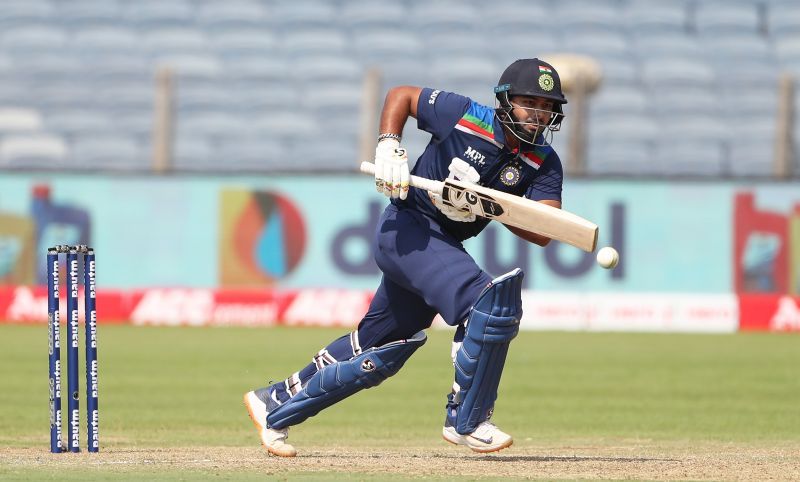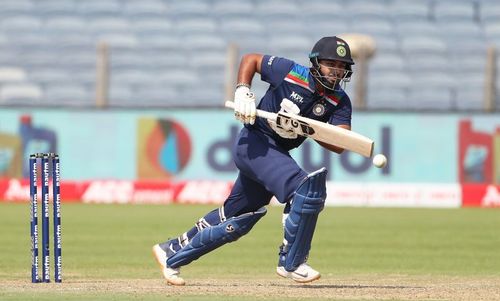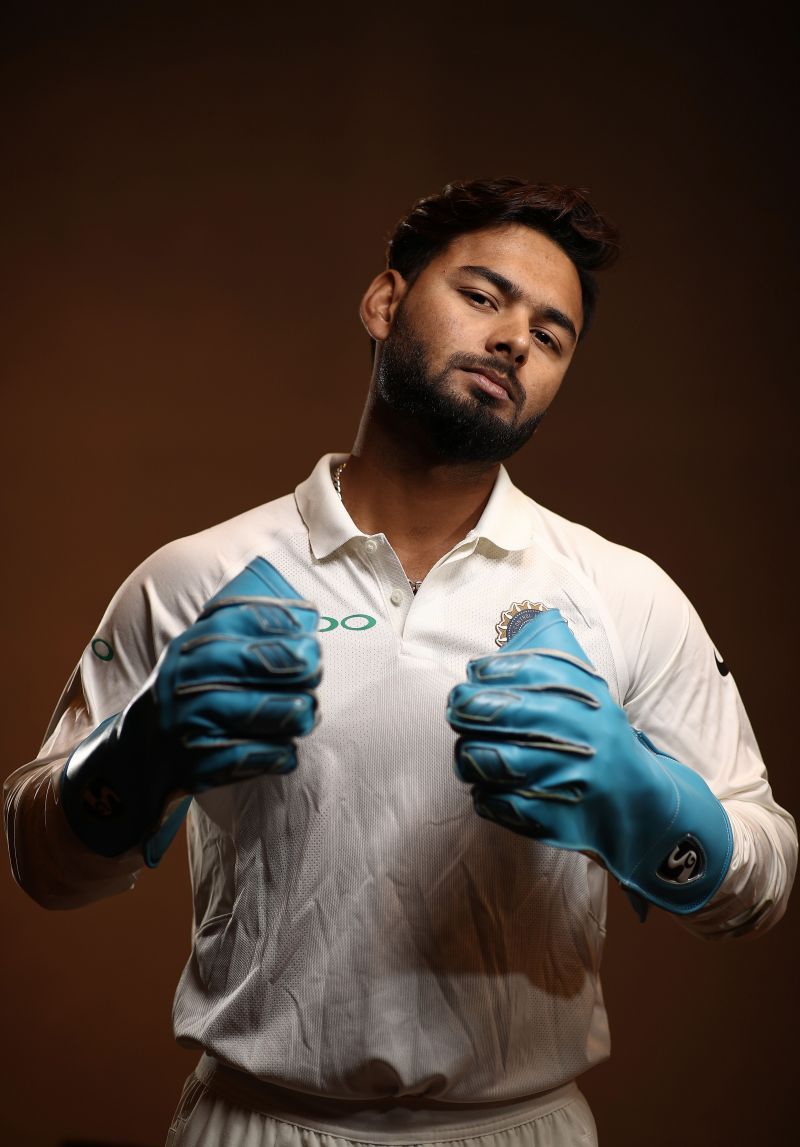
Saha is experienced but Pant is 'bindaas' like Sehwag, says Ajay Ratra

Former India wicketkeeper Ajay Ratra recently worked with India’s premier wicketkeeper-batsman Rishabh Pant with the Delhi Capitals in the IPL. Their association will resume in the UAE once the suspended IPL continues from where it ended in Ahmedabad on May 2.
The 39-year-old Ratra from Haryana was appointed DC's assistant coach shortly before the IPL 2021. At the tournament, he began to look after the wicketkeeping department and also assisted in the fielding side of things.
Ratra, who played in six Tests and 12 ODIs in 2002, felt that Pant has improved on his glovework, and was confident of an improved show in England, where the latter made his Test debut in 2018.
Ratra has been around as a qualified coach and was with the Assam team as their chief coach until recently. He has also helped young wicketkeepers at the National Cricket Academy and worked with, among others, Wriddhiman Saha.
Ratra, manager of Corporate Communications, ONGC, spoke exclusively to Sportskeeda about his interactions with Pant, his competition with Saha, learning under Delhi Capitals head coach Ricky Ponting among other subjects. Excerpts:
Q. Delhi Capitals gave you a chance to work closely with Rishabh Pant. How did you find working with Pant?
A. We both had a long chat about his ’keeping and I was really amazed to see that he was quite clear in his thought process. This reflects on his batting also, and that is good for a player.
We have spoken about how to gradually improve on wicketkeeping. We also discussed the last Test series, the way he kept against England at home earlier this year. He did well against England in the home series, where the pitch was turning and bouncing.
Technically also, we did a few changes like twisting and catching the ball, not in front of the body but by the side of the body. This is always helpful on turning and bouncing pitches.
If you see his graph, he has improved from England (debut, 2018). He has also gathered single-handed diving catches to his left. Definitely he is improving and needs to continue that. We were working on a few things like catching off deflections (to spinners). It was overall wicket-keeping, not just specific to IPL, and he was open to it.
Q. What were your impressions when he was keeping in Australia and then immediately in India, where many had doubts if he was good enough on Indian pitches?
A. I have been following Rishabh’s progress and feel he has improved on his footwork. He is working on the glove work. I feel he can improve more on glove work. Age is on his side.
When Dhoni made his debut, he was not that great. He learnt at the international level and gained confidence from his batting. Same thing applies to Rishabh also. He has been batting so well and kept well in Indian conditions. If he continues that, we can see a much improved Rishabh Pant.
Q. Pant debuted in Tests in England three years ago. How much will that experience help him this time?
A. That experience will come in handy. He can gauge the conditions, assess the problems he faced last time and adjust better to the conditions. England is not a great place for wicketkeepers. It is very difficult for any wicketkeeper because the ball swings so late after crossing the batsman and in that scenario, footwork becomes very important. One has to be closer to the ball.
For instance, if the wicketkeeper takes the ball on the inside hip, where there is good bounce like in Australia or in Dharamsala in India, in England, he has to go slightly closer and take the ball in front of the body. At the last moment, if the ball moves either side, he is in a better position to catch the ball.
Q. What were your conversations with Pant like?
A. He was working more on anticipation and deflection from shorter distances. He wanted to ensure his body reacted quickly. For wicketkeepers, standing up and catching a big deflection is almost impossible. He said that he needed to be one step back and see how he was reacting.
Q. How does Pant maintain a balance between wicketkeeping and batting?
A. It is important to keep that balance between wicketkeeping and batting. Generally, he does not keep for an hour in practice sessions in IPL. One good thing about being a wicketkeeper is that in every game you get to keep a full quota of overs – 50 overs or 20 overs.
It is not like batting, where you sit in the dressing room once you become out. He has good drills, actual match scenarios, depending on how he is doing in matches, what are the requirements you feel for a wicketkeeper.
For me as a coach, working on an international player who knows his game becomes easier. He made sure his feet were moving, gathering the ball nicely in the middle of the palm. He was feeling confident about keeping, so that in competitions he doesn’t have to do too much.
Q. How did he handle captaincy, wicketkeeping, batting – -- three in one for a youngster in IPL?
A. You have players not only from India but also from overseas. You have to handle them. He was doing well, confident and the thought processes were clear. Ricky (Ponting, head coach, DC) and he had regular conversations. He was doing well, using the resources. Ricky and he used to have long discussions after the match, before the match, in the hotel. He was listening to Ricky.
And being a wicketkeeper, he is street-smart cricketer. I am really impressed with his clarity of thought. If your thoughts are clear, even if one wrong thought comes, you overcome it and you become successful.
Q. What do you expect from Pant in England – six Tests looking ahead – 1 WTC final and 5-Tests versus England?
A. I want him to do the way he has been doing – with clarity of mind, be clear about his thought processes. In keeping, if your mind is clear, you will do well. Sometimes, you get thoughts like ‘this is happening, this is not happening’. I want him to continue the way he has been doing.

Q. Did you feel additional responsibility because you were handling Pant?
A. When you work with elite players, you have to be very precise and very accurate what the requirements are. He knows his game. You have to be accurate where you are hitting catches.
Q. How did Pant come across as a person?
A. He mixed with all in the team including the net bowlers. He is a 'bindaas' kind of person. Thinking bindaas, batting bindaas, hit the ball if it is there to be hit.
Q. What is your take on Wriddhiman Saha? How is he different from Pant?
A. I don’t believe in too many comparisons. Both are very good, though with different styles. Wriddhiman is more traditional. Rishabh is very ‘bindaas’ type like Virender Sehwag.
Both have different styles, for sure. Saha has more experience but Rishabh is improving and batting in crunch situations. It doesn’t mean Saha is not a good batsman. He doesn’t have to prove to anyone now.
As an overall package, Pant is ahead, especially the way he has performed in Australia. Though his style of play shows that Pant could be successful in only shorter formats, the way he has done well in different conditions in England, Australia, India, against tough opponents, he has come up nicely. That is his greatness.
The way he has adapted in different conditions has made him special. After that, even in Australia, when the situation demanded and when the conditions were not great for batting, he took his time. And when he felt it was time to attack a bowler, he went after him.
He can quickly score 30-35 runs in two or three overs. He is that sort of stuff. I really appreciate his adaptability, when to step on the accelerator and when not to. It is not easy, though. He has put an end to the debate, at least for now.
Saha should continue doing what he is doing. He’d never know when an opportunity arises. He is a good guy and hardworking. Saha is more traditional. Pant is more bindaas. Both are sincere in their wicketkeeping.
Q. What are your thoughts on your first experience in IPL coincided with the bio-bubble times and also suspended at half-way stage?
A. As far as our team is concerned, protocols were made. We were following them properly. Whatever the advisories came, we stuck to them. In fact, some players came with families, they said they felt safe here.
We were worried for not only ourselves but also for everybody else. If there was a breach, not only you suffered but also everyone else. We felt safe in the bubble. At home, we would go somewhere or the other.
We had our own ways of entertaining ourselves, it helped in team bonding and cared for each other more. I used to analyse our matches. Few cases came up and the right decision was made. Ricky and others were all ok.
The franchise also took great care of us, if anyone in the team had something to attend to on the home front in terms of medical help or any such sort, the franchise offered to help. Franchise looked after you and your family so well. That gave the team more confidence.
Q. How much did you learn from Ponting at DC?
A. First of all, Ricky did not make us feel that he was a legend of the game. He made us comfortable and gave us roles. We discussed before going to the ground.
He asked us for our opinions on strategy. It is my start, though I have been coaching state teams for six-seven years, it was a great learning process for me.
He was so clear in his thoughts whenever talking to players, what to do in situations, how much to practice and how much is possible. He was so good with the net bowlers. He made sure they felt part of the team. He cared for the net players as they were also helping the team in a way.